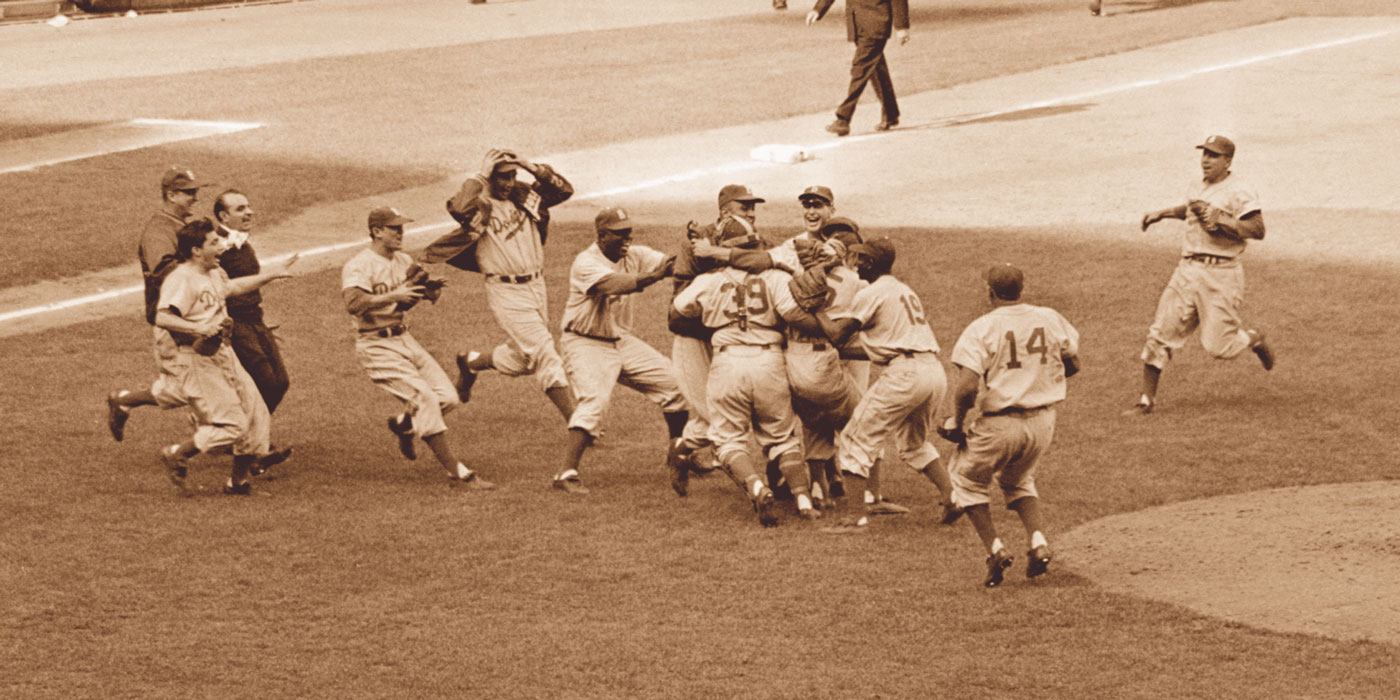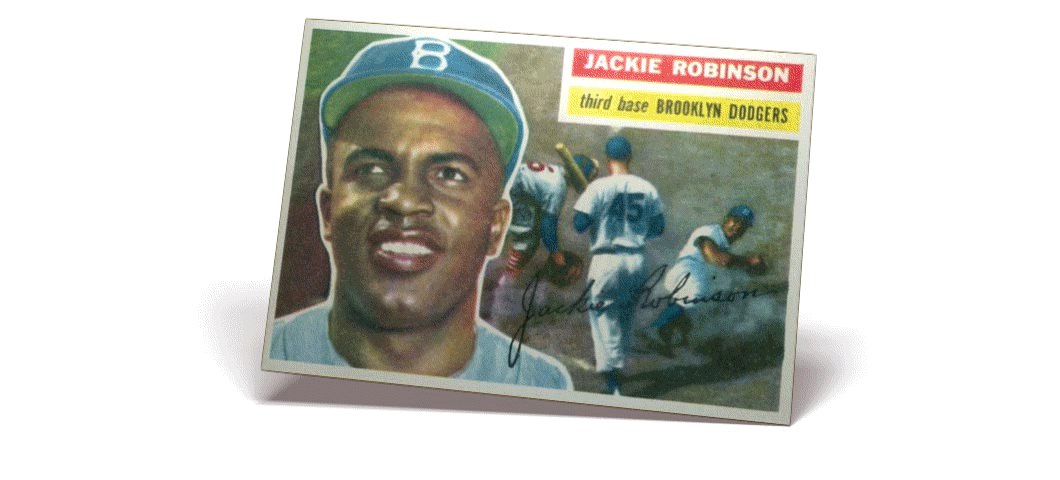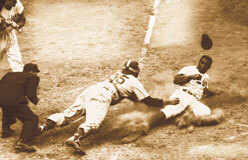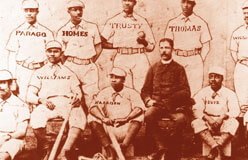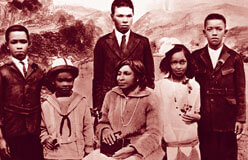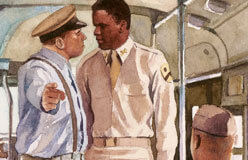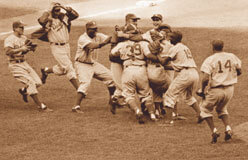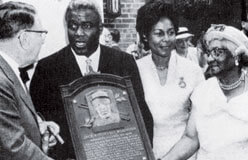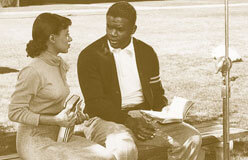Branch Rickey had been wanting to hire African American baseball players for a long time.
In 1945, he felt the time was right. All he needed was the right man. Scouts reported on Jackie Robinson’s skill as a ballplayer, but Rickey needed to know about Robinson’s character, so he invited him to a meeting. Rickey vividly described the abuse that Robinson would face if he agreed to play Major League Baseball. Then he asked if Robinson could take all of that abuse and keep his temper under control. Robinson replied, “Mr. Rickey, are you looking for a Negro who is afraid to fight back?” Rickey replied, “Robinson, I’m looking for a ballplayer with guts enough not to fight back.” After thinking about it, Jackie Robinson agreed that he could be that ballplayer.
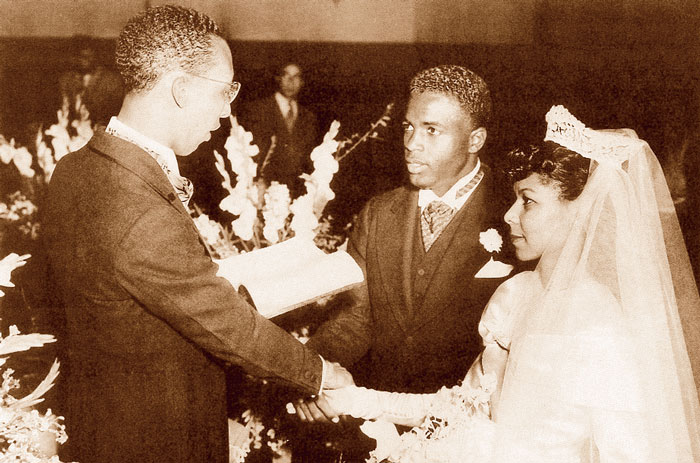
▲ On February 10, 1946, Jackie Robinson married Rachel Isum. Through the many ordeals ahead, he continued to draw strength from her love and support.
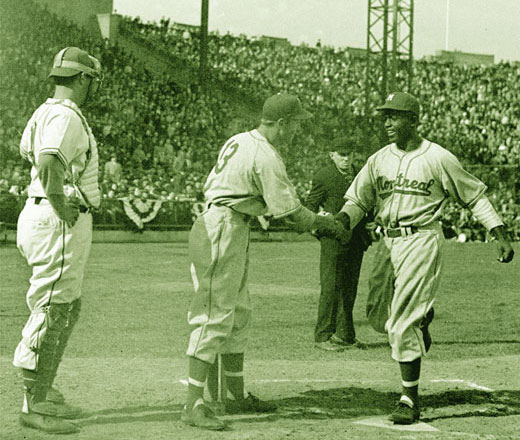
◀ In the spring of 1946, Jackie Robinson reported to the Florida training camp of the Montreal Royals. They were a minor league team affiliated with the Dodgers. Training in the South was difficult. Other team members stayed at a luxurious whites-only hotel. Meanwhile, the Robinsons roomed with a local African American family. Several of the Royals’ games were canceled because of laws that made it illegal for whites and African Americans to play ball in public parks together. However, when the Royals played their first home game in Montreal, Canada, fans welcomed Jackie Robinson with open arms and hearts. That year, he led the Royals to the minor league world championship.
In 1947, after a year in the minor leagues, Robinson moved up to the Brooklyn Dodgers. He was given number 42. He soon showed that he could contribute a lot to the team. While most Brooklyn fans gave Robinson a warm welcome, some away games were vicious. During a game against the Philadelphia Phillies, the opposing team, egged on by their manager, hurled a constant stream of vile insults at Robinson. Dodger teammate Eddie Stanky, who had previously told Robinson, “I don’t like you,” shouted to the Phillies’ bench: “Listen, you yellow-bellied cowards, why don’t you yell at somebody who can answer back?” By the end of 1947, the Dodgers had won the National League pennant, and Jackie had been named Rookie of the Year. ▶
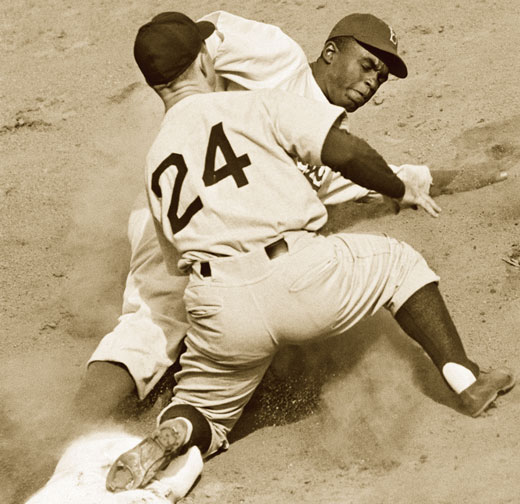
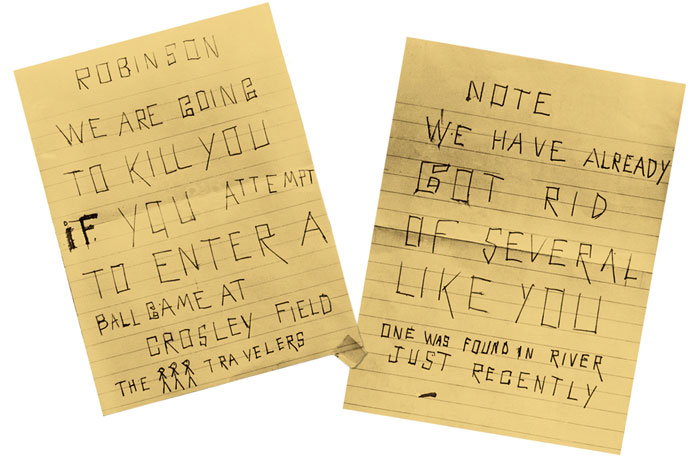
◀ Most of Robinson’s teammates admired his skill and character, but some fans didn’t. Here are two of the many pieces of hate mail that Robinson received.
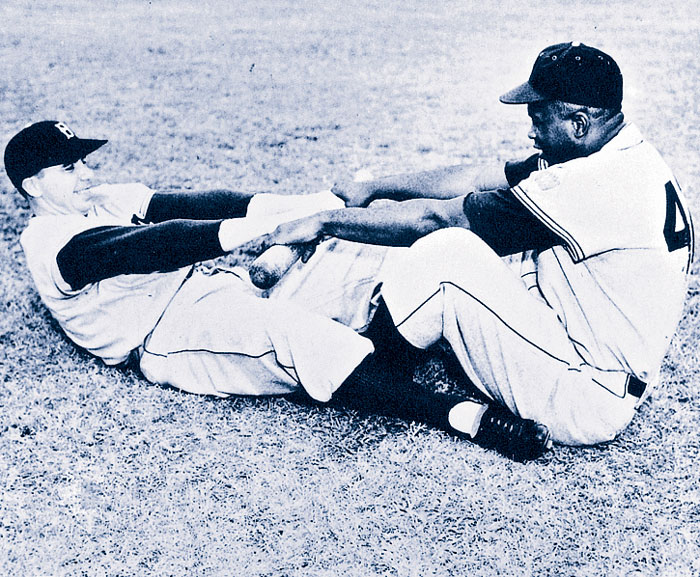
▲ Pee Wee Reese, who was from Kentucky, became a close friend of Jackie’s. At one game, hecklers shouted at Reese, asking why he, a man from the South, was playing ball with a Black man. Instead of answering them, Reese walked over and leaned his arm on Robinson’s shoulder in a gesture of support. Here, Reese and Robinson are pictured warming up before a game.
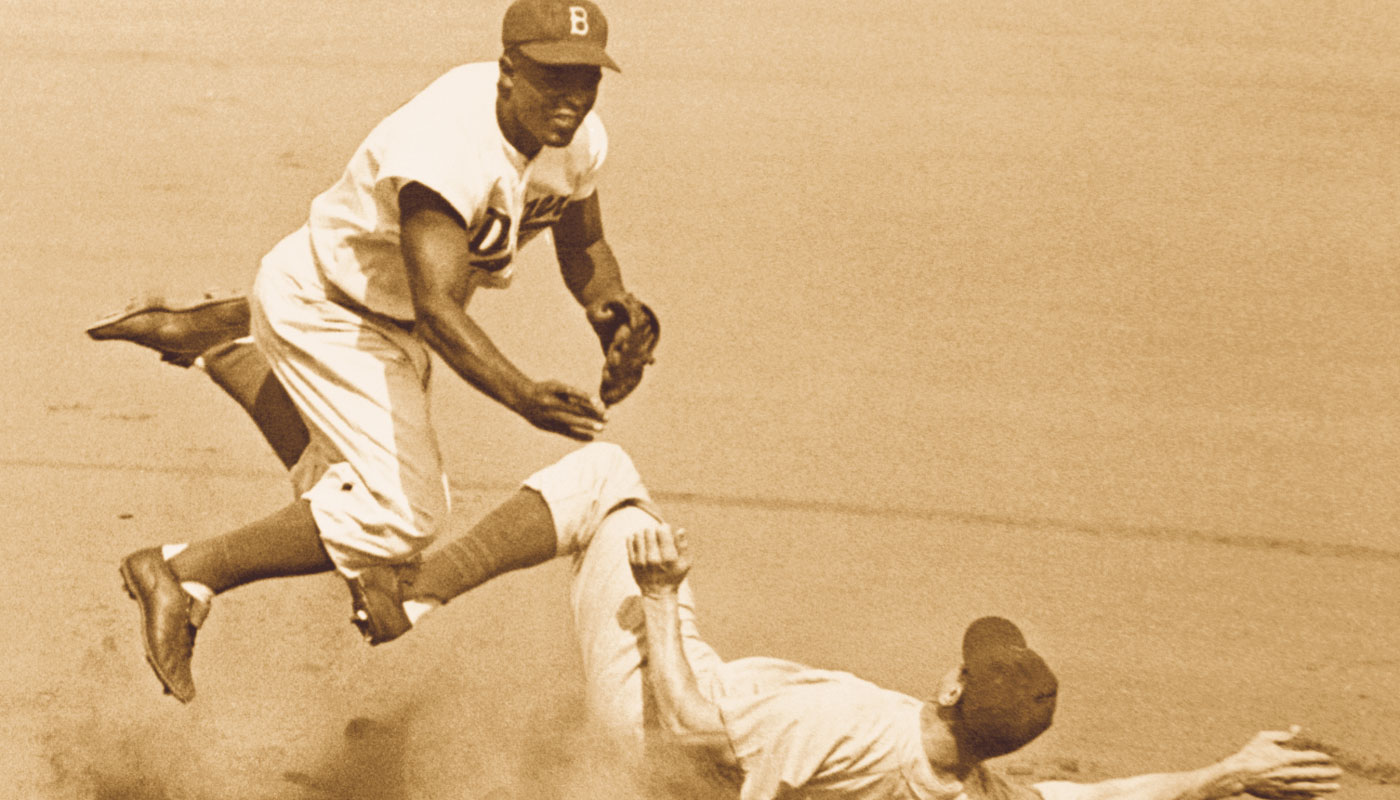
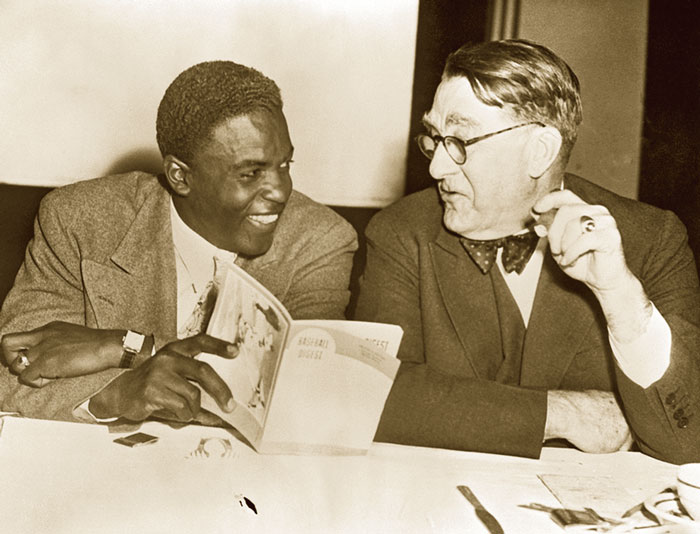
◀ After Robinson’s first two years as a Dodger, Branch Rickey told Jackie that the noble experiment had been a success, and that he was free to do or say anything he wanted to. From that moment on, Jackie Robinson spoke his mind. While some were offended, most admired his honesty.
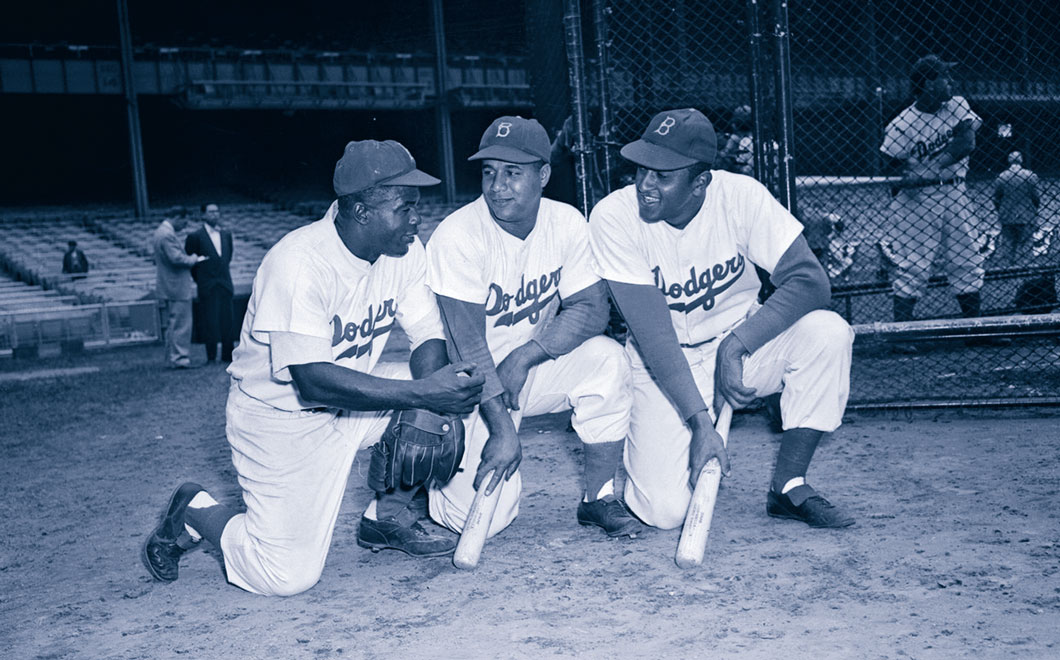
▲ Branch Rickey never intended for Robinson (far left) to be the only African American playing for the Dodgers. Late in the 1947 season, he signed pitcher Dan Bankhead. Within a few years, Don Newcombe (right) and Roy Campanella (center) had also joined the team.
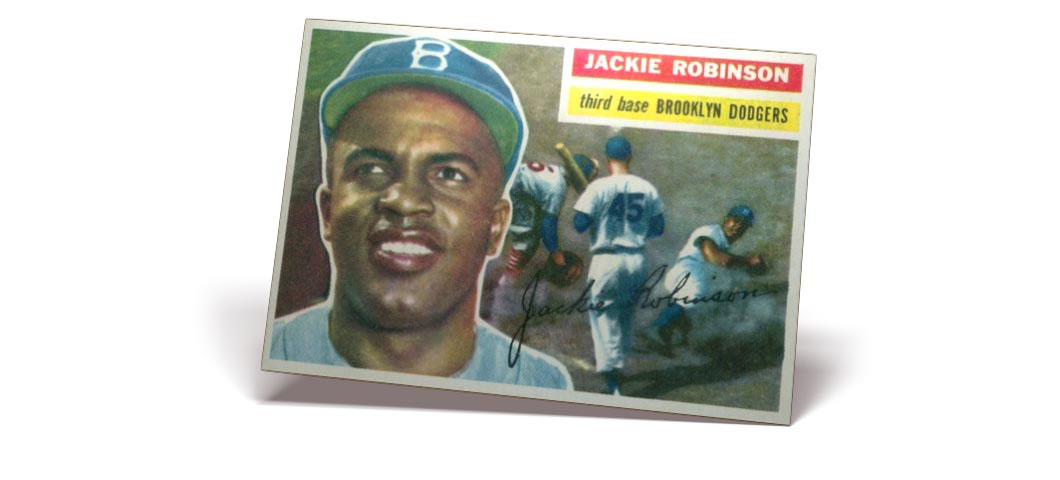
A Jackie Robinson baseball card can sell for thousands of dollars today.
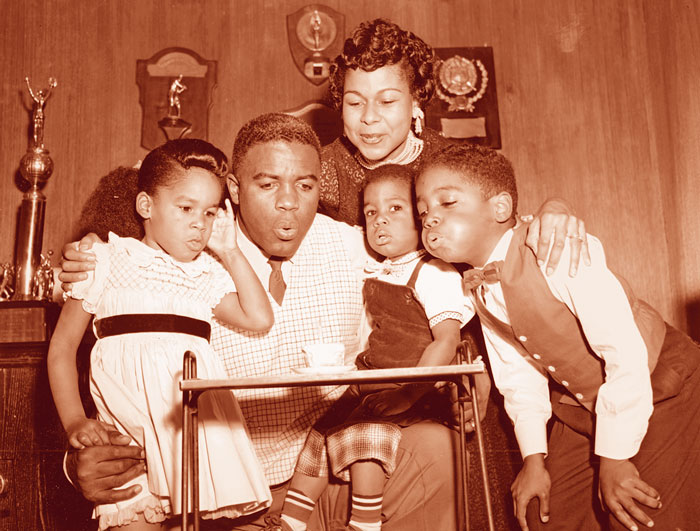
◀ Rachel and Jackie Robinson had three children. Pictured, from left, are Sharon, who was born in 1950; David, born in 1952; and Jackie Junior, born in 1946. Jackie was a dedicated father, always enjoying the time he could spend with his children.
